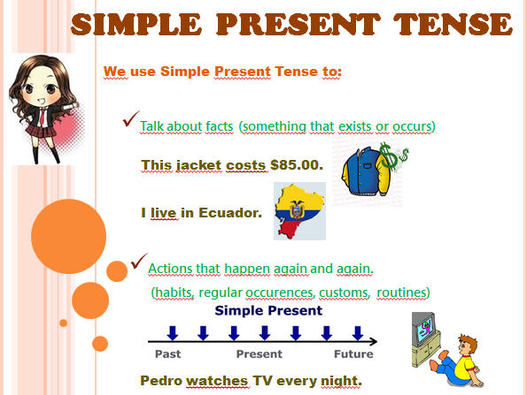Present Simple Tense
Write the correct form of the verb in each sentence.
1. John ______________ (play/plays) soccer.
2. They ______________ (don’t/doesn’t) study after school.
3. We _______________ (take/takes) the metro to the office every day.
4. What ___________ (do/does) you want to study?
5. On Tuesdays, I _________ (go/goes) to the mall.
6. Terry ____ (play/plays) soccer; he _____ (practice/practices) every day.
7. _______ (Do/Does) Lucy ride her bike to school, or_______ (do/does) she take the bus?
8. On Sunday, he ____________ (don’t/doesn’t) read the newspaper.
9. Where _____________ (do/does) they work?
10. How ____________ (do/does) you spell your name?
Make questions with the word groups, using (do) or (does).
1. (Where/she/live) _______________________________________________?
2. (When/you/play/soccer) _______________________________________________?
3. (What/he/eat/for/lunch) _______________________________________________?
4. (When/they/come/home/from/school)_________________________________________?
5. (she/want/to/work/in/the/office) _____________________________________________?
6. (your/mother/take/you/to/school)_____________________________________________?
7. (What/time/you/get/up)_____________________________________________?
8. (Where/your/father/work) ______________________________________________?
9. (Julia/live/in/Colorado) ______________________________________________?
10. (How/Juan/and/David/go/to/school)___________________________________________?
NOTE:
EDIT YOUR ANSWER AND SUBMIT IT BEFOR THE END OF THIS SEMESTER







